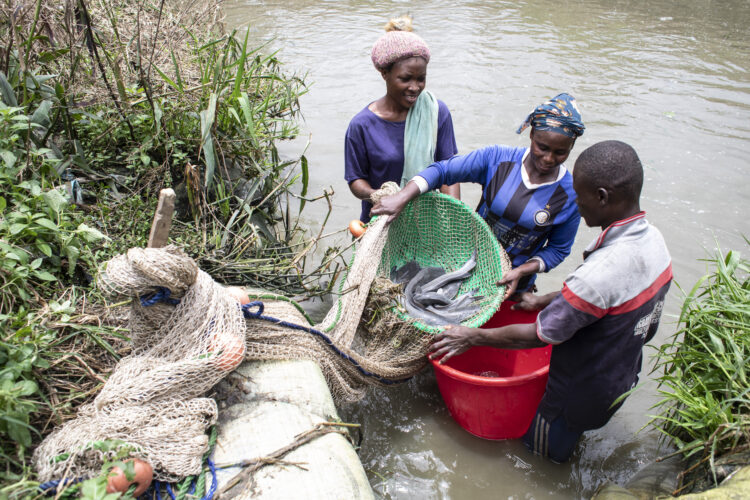On 21 November 2024, World Fisheries Day is celebrated worldwide to highlight the vital role of fisheries in providing food, supporting livelihoods, and conserving biodiversity. This day emphasizes the importance of sustainable fishing and the responsible management of aquatic resources to ensure food security and socio-economic growth for future generations.
Global fisheries and aquaculture production reached an all-time high of 223.2 million tonnes in 2022, with 185.4 million tonnes coming from aquatic animals, according to the FAO’s State of World Fisheries and Aquaculture (SOFIA) 2024 report.
The sector directly employs over 58 million people, with millions more in related industries. In Africa, 16% of the global fisheries workforce highlights the continent’s significant contribution to the sector and its potential for further growth.
Small-scale fisheries and their challenges
Small-scale fisheries are the backbone of coastal communities, driving sustainable development and lifting vulnerable households out of poverty. Women comprise 40% of the workforce, showcasing the sector’s inclusive potential.
However, fishing communities face numerous challenges, including overfishing, climate change, and pollution. Limited access to social protection programs and inequities further exacerbate these difficulties.
According to the SOFIA 2024 report, 37.5% of assessed fish stocks in the Western Indian Ocean were overfished in 2021, underscoring the need for improved regional fisheries management. Rising sea temperatures, acidification, and plastic waste also severely disrupt fish habitats and threaten marine ecosystems.
Addressing these challenges requires a strong commitment to tackle illegal, unreported, and unregulated fishing through sustainable, ecosystem-based solutions.
Towards a sustainable blue transformation
The fisheries and aquaculture industries are essential for global food security. They provide nutritious food rich in protein and vital nutrients and support healthier diets worldwide. Healthy fisheries also support biodiversity and balance marine ecosystems.
Despite its immense potential, Africa contributes just 1.9% to global aquaculture production due to infrastructure gaps, limited resources, and policy barriers. Unlocking this potential requires targeted policies, capacity building, technology transfer, and investment.
Initiatives like solar-powered cold storage facilities in Northern Ghana have reduced post-harvest losses for fishers, providing a model for sustainable solutions in other regions.Another innovative solution is the FAO-Thiaroye Technique (FTT) ovens, implemented in Côte d’Ivoire. These ovens are an enhanced version of traditional models used in artisanal fisheries. Upgrades include components like a furnace, a fat-collection tray, a cleaner smoke-generating system, and an air distributor, all designed to improve efficiency, safety, and environmental sustainability.
In conclusion, World Fisheries Day reminds us that we all have a role in protecting aquatic resources, from supporting local initiatives to advocating for sustainable policies.
Featured
- FAO World Fisheries Day
- Solar-powered cold storage facilities in Northern Ghana
- Coastal Fisheries Initiative is empowering communities to adopt sustainable fishing practices.
- Radio Programme: The future of youth in the agro-silvo-pastoral and fisheries sector: opportunities and challenges
- Increased fish demand in Gabon offers youth an outlet in aquaculture
- African countries celebrate the importance of fish industries employing 5.4 million people and providing essential nutrition
Article by Valentina Jaimes, FAO Communication for Development intern

